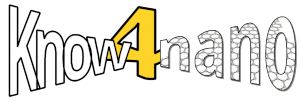Know4Nano
Acronym: Know4Nano
Implementation period: 01/10/2024 - 01/10/2027
GA number: 101159710
Type of Project: Horizon Europe
Internet presentation: https://know4nano.com/

Project Goals
The main goal of the Know4Nano project is to strengthen the scientific excellence of the BioSense Institute in the field of BioNanoTechnology (BnT), particularly in the development of advanced biosensing platforms for food safety and environmental monitoring. Through carefully planned collaboration, mobility, and training, the project aims to facilitate the transfer of knowledge and skills from leading European institutions, enabling BIOS researchers to expand their expertise in nanomaterials, biosensors, microfluidics, and diagnostics.
By supporting the individual career advancement of researchers, Know4Nano will enhance the overall research capacity and reputation of BIOS. In parallel, the project will significantly improve the institute’s research management and administrative capabilities, including the establishment of a Technology Transfer Office to support innovation, patenting, and commercialization efforts.
About the Project
The Know4Nano project brings together the BioSense Institute and three leading European research institutions with complementary expertise in the field of BioNanoTechnology (BnT). The objective is to advance scientific excellence of BioSense Institute by developing innovative biosensing platforms for real-life applications along the farm-to-fork food chain. The project establishes a structured knowledge transfer platform based on well-designed staff exchanges, training programmes, and collaborative research activities.
By leveraging the advanced scientific knowledge and infrastructure of its partners, Know4Nano will significantly enhance BioSense Institute’s expertise in nanomaterials, biosensors, microfluidics, and food safety. The project also aims to boost the institute’s institutional capacity, raise its visibility in the European Research Area (ERA), and lay the foundation for long-term strategic collaborations.
The knowledge transfer will be driven through collaboration with three key partner institutions:
- Catalan Institute of Nanoscience and Nanotechnology (ICN2), Spain – with expertise in nanotechnology-based biosensors and microfluidics;
- National Research Council (CNR), Italy – specialized in molecular sensing, optical biosensors, and food safety validation protocols;
- University of Chemistry and Technology (VSCHT), Czech Republic – experts in nanomaterials synthesis, functionalization, and advanced materials characterization.
The cooperation will strengthen both research and administrative capacities at BIOS. It will support the establishment of a Technology Transfer Office (TTO), improve research management procedures, and increase the ability to translate scientific outcomes into practical innovations.